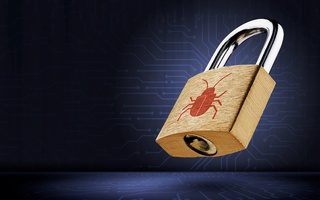A couple of decades ago, a computer program was used for application purposes for the first time, and that was the beginning of digitalization. We will use this word for everything associated with usage of software, binary code, IT. Initially, programs were used for calculations, but consequently they got into technological processes. IT penetrated almost all business spheres, and this will go even further. Even now, e-commerce makes up the major part of economy. Management digitalization makes company management more flexible, delegating a part of the functions to software. Digital telemedicine can diagnose using machine learning technologies. Digital video studio shoots TV series based on the analysis of audience preferences. Digital taxi… well, you know. Evangelists forespeak that companies not willing to be digitized are doomed.
Information security is meant for sustaining the functionality of business processes, and the importance of its security makes it one of the major tasks. Although cyber threats don’t carry direct harm to anyone’s health - security of transactions, defense against threats, safety of expensive equipment – are vital for an enterprise. Hacking of medical information systems can result in harm to health and lives of people. And if in nearest future, as futurologists forespeak, implantable chips becomes wide-spread, the threat will become quite serious. Taking all this into consideration, information security issues can call into question the future of digitalization.
Digital transformation is more than just delegating certain functions to computers. Patchwork automation is also far from that, as in this case there is a separate solution for each part and all the solution are not connected to each other. We can speak about digital transformation only in case of achieving new level of management, analytics and forecasting. There are companies that make digitalization the basis of their ideology, and this has led to review of the market, new attitude to clients, gave new instrument and approaches. The majority of directors aim to make their traditional business more efficient due to usage of new digital instruments.
Take as much as you can carry
There are a number of spheres where digital means have already been deeply integrated and become commonplace: accounting and finance, managing technological process, some security functions. Electronic marketing becomes more wide-spread day by day. Some advanced companies have gained a lot of success in the field of digital sales management and client management. Information security digitalization carries fragmentary character. In fact, digitalization still can hardly find its place in our country. More often, it doesn’t go further than monitoring internet traffic and access to internal resources. At the same time, after implementation of an information security system we can speak of digitalization.
The history of computerization gave us an illusion of omnipotence, although more often we learn only basics. Taking processes into electronic form helps us to better understand the things you manage. In digital area, every action leaves traces, one should only collect information, analyze it and come to conclusions. The modern phase of technology development gives the ability to get new level of using digital means, but that requires some brain changes.
What to begin with?
Managing every business-process and function separately gives only partial understanding and we can hardly realize the way all the parts are connected. Quite often they are not connected at all, and we make titanic efforts to keep various parameters in mind and associate them to each other. The first step to get management into digital area is to understand what software means are already in use, do they make up a system or each of them lives its own life. Such an audit will help you to make conclusions about the current problems and the way to solve them.
The second step to digitalization is getting the infrastructure to unified management standards. Currently, there are two ways on the market to achieve that. The first way is to maximize the list of software purchased from a single vendor. But this approach has some evident cons, including monopolization of the market. The current level of technology and society allows demanding more. That’s why the second approach, that is now gaining momentum, is usage of open-source software. It’s not only about accessibility of the source code for corrections. The main idea is to set unified standards and interaction protocols that make software compatible and users can build their own digital area refining software to satisfy their needs.
StaffCop as a digitalization instrument
Usage of open-source technologies has another advantage: it helps to avoid costs on licenses prolongation, purchasing new software solutions and other. You make a one-time payment for the base product to use it, and its price doesn’t grow unpredictably. That’s why StaffCop was initially based on open-source technologies. StaffCop Enterprise is a monitoring software system that can be used as one of the major parts of the information security system. It’s based on the most relevant information security principle – not to be bound to the network perimeter. Now the geolocation of employees is not important, as well as their connection to you within the local network. If they can access internet, StaffCop can work.
The system collects logs for investigating information security incidents and systematizes them using advanced analytical instruments. It can monitor communications and atmosphere in the team, forecast critical situations on the basis of behavior analysis, protect trade secret, administrate workstations remotely – that means that the system can be used not only for information security management but for receiving a lot of valuable information for managers off all levels.
In fact, that is a multi-purpose tool that can become the basis for digitalization of not digitalized or partially digitalized businesses. For example, one of the functions gives the ability to receive the inventory list of all the hardware and software installed on workstations. This not only helps you understand the current level of the company digitalization but also track if an employee stole an expensive video card changing it for a cheap one. That’s true for software as well. StaffCop monitors presence and usage of software. It will notify if an employee starts downloading malware or mining bitcoins during a workday.
In addition, StaffCop tracks work ethic and KPI fulfillment: how many letters and calls an employee makes per day, whether he spends time in office applications or social networks. By the way, working in social networks in necessary for SMM-specialists, and this can be taking into consideration by the system. A lot of employees get more motivated when they are warned about the presence of a monitoring system.
Systematic approach is integrated in StaffCop on the architecture level. The system is initially tuned to work without conflicts with other elements of digital infrastructure, and if any troubles with upgraded versions of other software arise, the support team solves them in no time. In addition, StaffCop features functions helping to solve other related tasks. For example, you don’t have to purchase TeamViewer and other administrative tools.
To sum it up, information security helps reduce costs and increase the efficient of business-processes. Besides, digitalization can’t work without the corresponding level of information security.









